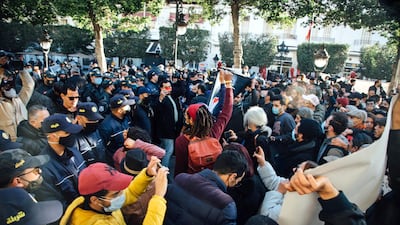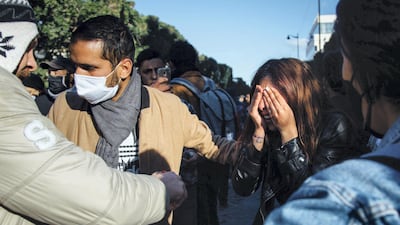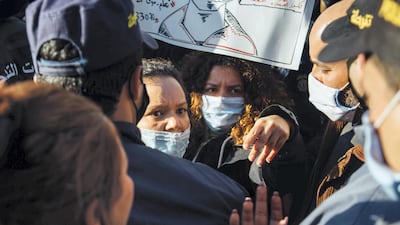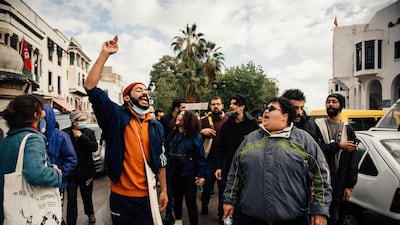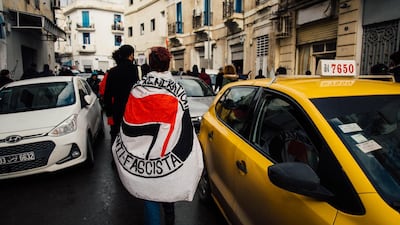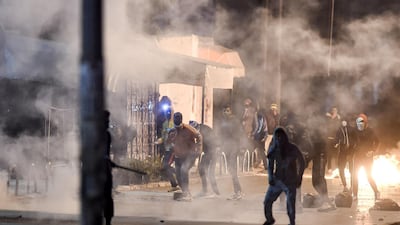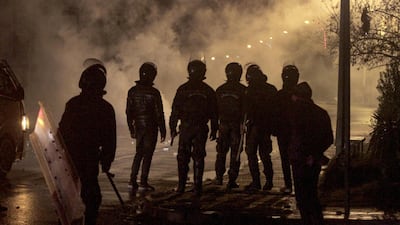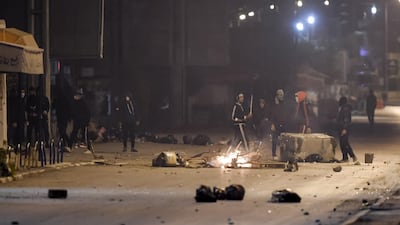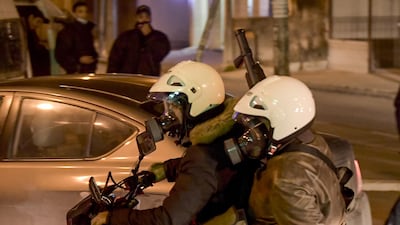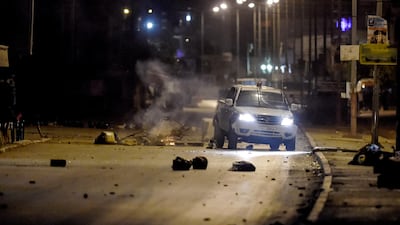A group of around 100 protesters marched through downtown Tunis on Monday afternoon, shouting slogans calling for governmental reform and for both Prime Minister Hichem Michichi and Speaker of Parliament Rached Ghannouchi to step down.
Over 630 people have been arrested in the latest wave of protests, most of then minors, Interior Ministry spokesman Khaled Hayouni said on Monday.
Secretary General Noureddine Taboubi of the General Tunisian Worker's Union (UGTT) put out a statement Monday acknowledging the legitimacy of the protester's anger but "inviting protesting youth to stop protesting by night."
Late on Sunday evening in the working-class neighbourhood of Ettadhamen, on the outskirts of Tunisia's capital, dozens of young protesters hurled rocks and fireworks at riot police.
Officers responded with a volley of teargas. The army was dispatched to support local police forces and secure vital sites in several cities across the country, including Bizert, Nabeul, and Sousse, according to an official statement.
Social media videos showed young people with faces covered, burning tyres and hurling rocks, then coughing and sputtering as police responded with teargas.
Ten years ago Ettadhamen was one of the early sites of protests that would eventually overwhelm the capital and force the ouster of president Zine El Abidine Ben Ali. Those protests were driven largely by economic concerns, with slogans like “Work, freedom, national dignity! Employment is a right!”
In the decade since Ben Ali’s toppling, the economic situation for young people in Tunisia has only deteriorated. More than one in three are unemployed, according to the World Bank, and GDP has shrunk by 9 per cent while consumer prices continue to increase.
Tourism, one of Tunisia’s major drivers of revenue, has ground to a halt amid the pandemic. That has left many in towns like Sousse, a regular destination for European holiday-makers, without jobs and with few options. Videos emerged overnight of young people breaking into stores and carting off goods in the city.
Mr Hayouni said on Sunday that dozens of children aged 14-17 were among those rounded up during the protests and for curfew violations.
A four-day government lockdown and 4pm curfew at the weekend aimed at stemming the rise in coronavirus infections exacerbated tensions in neighbourhoods like Ettadhamen, where many subsist on day labour. While infection rates are high in these tightly-packed neighbourhoods, most residents resist another shutdown over fears of lost wages.
That sentiment is felt in poor neighbourhoods across the country. Monday morning, photographs emerged of graffiti sprayed on walls in the Kabaria neighbourhood of Tunis. Among other slogans: “The revolution of the hungry.”
